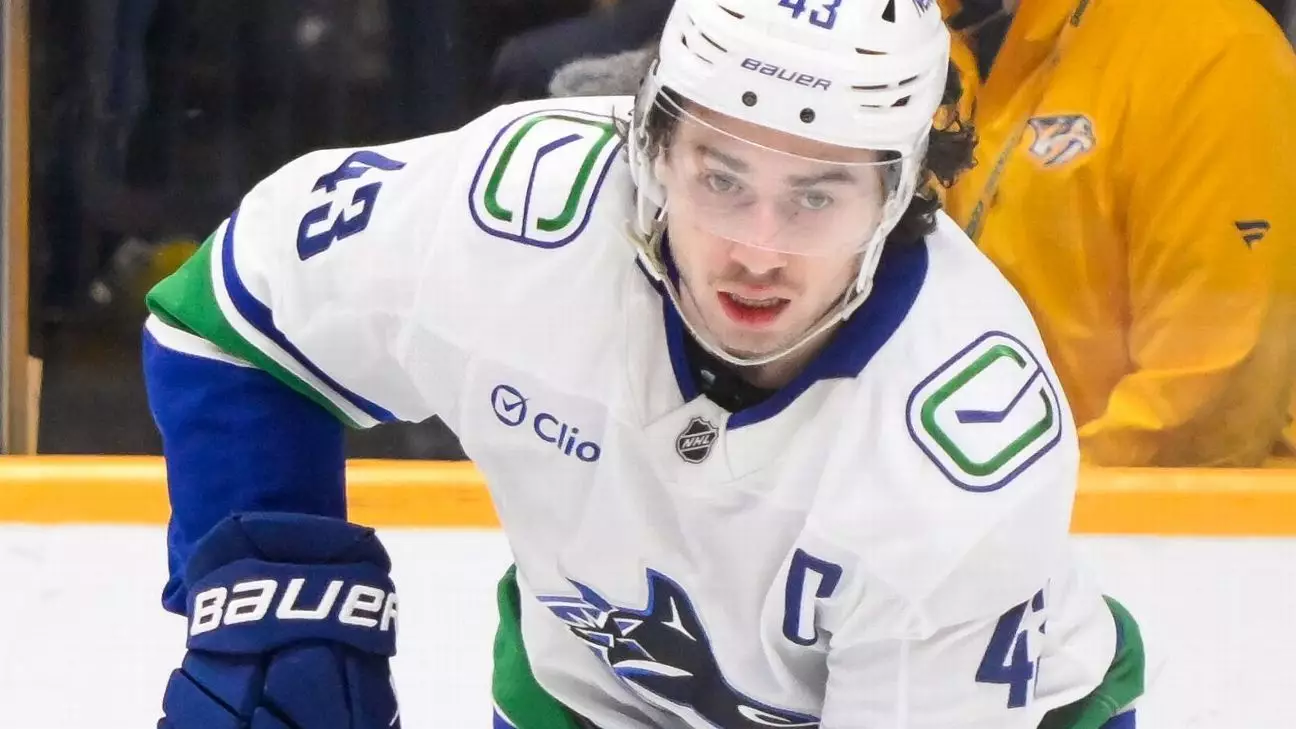In a significant setback for Team USA, the Vancouver Canucks announced that defenseman Quinn Hughes will not compete in the highly anticipated 4 Nations Face-Off due to injury. The 25-year-old defenseman has been sidelined since January 31, missing four consecutive games as he copes with what is suspected to be a lower-body injury. This news comes as a disappointment not only for fans but also for the team, as Hughes was expected to play a pivotal role in the tournament.
Hughes’ absence is particularly impactful considering his remarkable performance last season, where he clinched the Norris Trophy, awarded to the NHL’s top defenseman. With a dynamic record of 59 points—14 goals and 45 assists—in just 47 games this season, he has established himself as an indispensable player for the Canucks. Vancouver’s general manager, Patrick Alvin, emphasized the importance of respecting Hughes’ decision, underscoring that he knows his body best. This thoughtful approach reflects a modern understanding of athlete health management in professional sports.
Stepping into Hughes’ spot is Jake Sanderson of the Ottawa Senators. The 22-year-old, now in his third year in the NHL, brings his own strengths to the lineup, having accumulated 35 points in 55 games this season. Selected fifth overall in the 2020 NHL draft, Sanderson has shown promise and skill that will undoubtedly contribute to the team’s efforts. His addition gives Team USA a chance to showcase another young talent in the tournament, continuing the trend of developing younger players into substantial roles.
The new U.S. defense corps, which also features established talents like Adam Fox, Charlie McAvoy, and Zach Werenski, now must rally to fill the gap left by Hughes. The combined skill set of these players could augment Team USA’s strategies as they enter the tournament.
The 4 Nations Face-Off is not just another tournament; it symbolizes an opportunity for emerging stars from the U.S. to shine on an international stage. This tournament is significant as it showcases their talents in a “best on best” competition format for the first time, including fellow young star Jack Hughes, Quinn’s younger brother. The excitement of such a tournament is palpable, making Hughes’ absence even more discouraging.
Despite the void left by the absence of a crucial player like Quinn Hughes, the tournament offers the remaining team members a chance to define themselves. Coach Rick Tocchet mentioned that it was uncertain whether Hughes might have returned for the Canucks in the upcoming games but confirmed the importance of long-term health and performance over immediate participation.
As the U.S. prepares to face Finland in their opening match Thursday in Montreal, all eyes will be on how they adapt to this change and who will step up to elevate their game in the face of adversity.


Leave a Reply